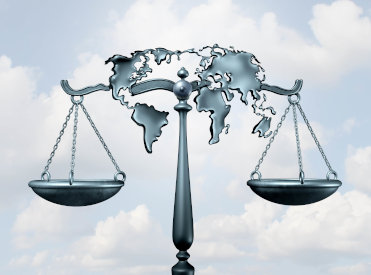Mutual Legal Assistance (MLA) is the formal process of sharing evidence about criminal investigations or prosecutions between countries.
Once evidence is identified overseas, law enforcement agencies make a request to their central authority (in Australia this is the International Crime Cooperation Central Authority). If the central authority approves the request, it is sent to the foreign country. If the foreign country approves the request, the evidence will then be delivered.
Many states rely on mutual legal assistance treaties (MLATs) to govern the MLA process. An MLAT is an agreement between states outlining the terms for managing cross-jurisdictional requests for evidence.
In a report commissioned by the Global Network Initiative, Data Beyond Borders: Mutual Legal Assistance in the Internet Age, author Andrew K. Woods proposes ways to improve MLATs and possible alternatives.
Ways MLAT’s can be improved
The report recommends that there should be an MLAT for every state-to-state relationship. Although the UN Model Treaty on Mutual Assistance in Criminal Matters needs revising in order to reflect the effect of technological advances on law enforcement, it is a suitable guide for countries that are implementing new treaties. MLATs should be drafted in technologically neutral terms to ensure existing and future communication standards are covered.
MLATs should also identify who is handling the requests. Governments should produce reports describing the number and origin of requests, categories of data and the purpose of the request.
They should also establish clear deadlines for responding to requests – preferably within a month. A person should be appointed to update requesting states and ensure the deadlines are being complied with.
The report suggests that MLATs need express provisions protecting human rights. For example, they should include a commitment not to share data that may lead to a violation of human rights.
States should be able to deny requests that are potentially contrary to human rights obligations under the International Covenant for Civil and Political Rights.
Although treaties need ratification by a legislative body, executive agreements, which are binding under international law, provide a way for states to improve their current MLA principles while a treaty is being negotiated.
Alternatives to MLATs
The report touches on possible alternatives to MLATs, but states that these are problematic and MLA reform should be the priority. One alternative considered in the report is to revise domestic laws that affect the MLA process. National legislatures can develop or amend existing laws in conformity with that nation’s obligations under an MLAT.
Another alternative is to introduce plurilateral or multilateral treaty regimes to unify state-to-state requests for personal data. Universal rules would ensure efficient processes are implemented, particularly for countries that have difficulty meeting the demands for data requests.
There are a number of disadvantages to this approach. It would take some time to implement, countries may not be able to compromise, and knowledge that a new regime will be implemented may deter nations from fixing their current MLA processes. The new regime may also result in fewer protections for human rights.
A drastic alternative is establishing a third party intermediary to manage cross-jurisdictional data requests. This is a possible solution to the non-uniformity of the current system. However, the report concludes that this notion is largely impractical. It is unlikely that states would trust a private body to deal with their sensitive criminal information.
Key takeaways
If used correctly, MLATs can be very useful devices for international cooperation. However, there is significant room for improvement in the way in which MLATs are currently being utilised in practice, particularly in the arena of human rights. A focus by international lawmakers on improving and reforming the use and implementation of MLATs may assist in strengthening international relationships in relation to evidence-sharing, and ensuring a more efficient regime.



